Why can’t anyone in America seem to remember anything anymore?
Some years ago, I was discussing the end of my dog’s long life with a vet, and was trying to figure out how I would know when it was time.
She said something that left a big impact on me, which was that dogs live entirely in the present. They don’t sweat yesterday, and they don’t worry about tomorrow.
Staying present is an admirable goal for people, but it goes without saying that human beings cannot function severed from thoughts of yesterday or tomorrow, and hope to survive.
It was not so long ago that the grandchild of Nazis, who settled in the comfort of apartheid South Africa, felt compelled to make a visit to Auschwitz because of the disgust he engendered with his antisemitic flirtations, which his allies and apologists assured the world were misunderstood. The world’s richest man is on the spectrum, after all.
When he went he was toured about the extermination camp by a man named Pawel.
A few weeks later when I was there, I asked Pawel if the visit had made an impression on Elon Musk.
His precise response was:
I’m afraid not.
Let me tell you a story about Auschwitz.
Eighty years ago and six days from now in the early hours of the morning Red Army soldiers approached a barb wired fence from the south that surrounded a place that beggars belief, description or understanding.
There is a question that has hung over all of humanity ever since.
What is the meaning of this place?
At some level, Auschwitz is imponderable.
It simply overwhelms.
Pawel was a radio journalist before coming to Auschwitz 17 years ago to help humanity remember what happened there.
I had been to Auschwitz once before in 2005, as part of the American delegation led by Vice President Cheney, which included Elie Wiesel and Congressman Tom and Mrs. Lantos, but it is impossible to say that you have been to Auschwitz before.
Auschwitz is an inaccessible place because it can never be experienced, smelled, felt, or heard.
There were thousands of witnesses to what happened, but there are no survivors from inside the gas chambers. Only the dead and immolated truly experienced Auschwitz, for only they made the final descent down the stairs into the undressing rooms.
The buildings were the prettiest on the campsite. The grass was manicured and flowers were planted.
Clothes were hung, and shoes were tied together.
Into the gas and ovens they went.
At some level, the meaning of Auschwitz is straight forward. It is a vast cemetery and crime scene, where 1.1 million human beings were murdered as part of the Nazi genocide that killed six million Jews, but many more.
Let me try to show you what it is with five photographs:
The book of the dead — the Book of Names — is incomplete. Though it fills a room, it lacks two million names.
Each name was a human life. Each shoe and piece of luggage belonged to a person, like this little boy named Amos Steinberg:
This shoe was traced to Amos because his name was written on it. You can read more about this story here and here:
They were all sent to the ovens.
There is a duality at Auschwitz that is shattering. It is simultaneously a space of utter madness and hyper-rationality. The industrialized, assembly line murder of millions of people spurred innovation and invention. The first use of Zyklon B, the pesticide, was in block 11.
The windows were sealed in block 10 next door, so that the women undergoing medical experiments and sterilization wouldn’t be able to see any activity in block 11. There, the first experiment of Zyklon B involved some 800 Soviet prisoners of war and 250 Polish prisoners selected from the camp hospital. They were herded into the basement, and became the very first victims of Nazi murder with a new tool.
Treblinka was the site of 900,000 murders during the period of its operation from November 1, 1939 - September 1943. The stolen possessions of the victims were piled and sorted in the open. The bodies were burned in the open. The gassing was done with a tank engine.
Auschwitz was the sum of all the learnings from all of the other killing camps.
The stolen possessions were processed at “Kanada.”
It was so named because “Kanada” was believed to be a country of great riches.
It was one of the most privileged duties an inmate could receive because they were expected to be clean for work, and could take frequent showers to wash away the stench and filth that covered them in the depravity of their existence:
There were other innovations at Auschwitz. The hair was shaved after the gassing, and the bodies were desecrated after death.
Gold and metal teeth would be removed, and sometimes, the Sonderkommando, Jewish prisoners compelled to do the gruesome work, would steal some of that gold and use it to bribe guards and survive.
Auschwitz was a place where humanity was stripped from every inmate. Most existed in a state between life and death, and were the daily witnesses to a killing frenzy all
around them.
The box cars of human beings, loaded like mistreated cattle, passed under the entrance arch into Birkenau. They ended up on a selection platform, where SS physicians waited to point right or left towards gas or slavery.
Jews were not alone in Auschwitz. The first prisoners of the concentration camp were Polish men, and among the groups incarcerated were also Soviet POWs, Roma people, and many others. But, when the second function of Auschwitz developed — the function of mass extermination of Jewish people — the Jews were the only ones who went through a selection process established by SS officers.
Most of the Jews deported to Auschwitz never became prisoners of the camp. They were murdered in gas chambers immediately upon arrival. Young mothers and children were killed together. The old were killed, along with the small, infant, or handicapped. Everyone who wasn’t useful economically was killed immediately.
Pawel and I walked around the camp for many hours, and we came to a quiet spot in the woods, nestled against some barbed wire and a guard tower about 15 minutes away. The trees were filled with birds and their songs.
Pawel pointed out a stork taking off from one of the ponds off in the distance. It was flying low over towards gas chamber number 5 and the mass graves at the edge of a wooded area.
He said that visitors sometimes ask him if it is true that even the birds won’t fly over Auschwitz. He laughed and said, “I always tell them that, of course, that isn’t true. The birds don’t know what happened in Auschwitz.”
We sat on a bench, and Pawel told me a story.
He said that the SS wasn’t omnipotent. The German government functioned like any other government, at some level, when it came to the bureaucracy of administration.
Auschwitz didn’t just drop from the sky. It had to be built, and therefore it required building permits.
The initial plans of the second part of the Auschwitz camp, known as Auschwitz II or Birkenau, called for a camp of 100,000 people.
The plans were brought before some person, some cog in the vast apparatus of the Reich, for approval. There was a deficiency noticed right away.
It was over the fact that the SS had no plans for either water treatment or disposal. The plan had been to simply dump the waste in the nearby Vistula River, which would have poisoned the drinking water supply down river for millions of Germans.
Before the camp could be built, this engineering and design element had to be satisfied. It was.
The waste water treatment facilities were built to last. Here they stand 80 years later. The SS got its stamp.
This story says a great deal about something important, doesn’t it?
The bureaucrat didn’t object to the madness of the prison carved out of the Polish woods for 100,000 people. He objected to where their fecal matter would be disposed.
The banality of evil, indeed.
What is the meaning of Auschwitz? I don’t know if I could answer the question in a lifetime. I can just tell you what I saw and learned.
There is only one place where Pawel asked me not to take a picture, and that was because of the visible presence of human remains.
It was the enormous case of shaved hair. Pawel explained that the decision has been made that the hair will be allowed to disintegrate and turn to dust.
There will be no conservation efforts. For now, it sits as an incontrovertible proof of what happened in Auschwitz.
The first thing it proves is the murder. The second thing it proves is the scale of the theft. The corruption and stealing was the greatest in human existence. It boggles the mind. The evil is simply staggering.
The leader of the German AFD, an extremist party rooted in Nazism that is strong and gaining strength in Germany, claims she is no Nazi, while proclaiming that the SS is not a criminal organization. She is supported by Musk.
Auschwitz is a warning. It is the proof that evil is real. It is the proof that human beings are capable of monstrous acts. Ordinary people died at Auschwitz. Ordinary people were murdered at Auschwitz.
The ideologies of human hatred that created Auschwitz are alive and well in the 21st century.
They have not been defeated.
There was a survivor who spoke at the 75th anniversary of the liberation of the camp.
What he talked about was indifference. Indifference, he said, is what can cause another Auschwitz to drop out of the sky one day.
Indifference.
The Holocaust is tens of millions of stories and actions over years of despair and suffering across a vast swath of geography, the epi-center of which was German-occupied Poland.
The violence done in Poland, and the lessons it contains, are essential for human survival.
Auschwitz is just a speck of land in Poland, but it is a nightmare for all of humanity.
The nightmare endures because Auschwitz is an idea that hasn’t yet died. It was the manifestation of a twisted vision called fascism and Nazism.
It exists, and always will. Yesterday, Auschwitz was packed with visitors. This is a good thing. It is a heavy place that burdens the soul. Yet, Auschwitz must be seen, experienced and remembered.
Soon, there will be an hour of the human story that expires, with the passing of the last survivor who carries with her or him the last experiences and memories of Auschwitz.
After that, it will all be history. There are millions of hours of archived eyewitness testimony from the survivors that will endure forever, but the human connections and memory will be gone.
Many, many years from now, when Pawel is an old man, he will carry a very special type of distinction.
Pawel will be among the last living people to have known survivors of the Shoah.
He has known scores of them. He is their voice. In some sense, his job is to be a living testament of human conscience. Pawel will never be a billionaire, but he is a giant of a man.
His life is filled with meaning. Far more than these wretched people, who are cowards, supplicants and takers — all:
We will all pass on, and when we do, most of us hope to leave something behind.
Auschwitz was left behind, and we must all reckon with it — forever — long past the life spans of the murderers and victims.
What Auschwitz left behind was a record.
There were perpetrators, victims, bystanders, and the righteous. There were witnesses. There are photos. There are plans, hair, shoes, and millions of other pieces of accumulated personal belongings.
The crime is not in doubt.
The lessons from the crime are in doubt. The ability to remember them is in doubt.
They will always be in doubt because so long as there are human beings, there is a possibility of Auschwitz.
May their memory be a blessing.






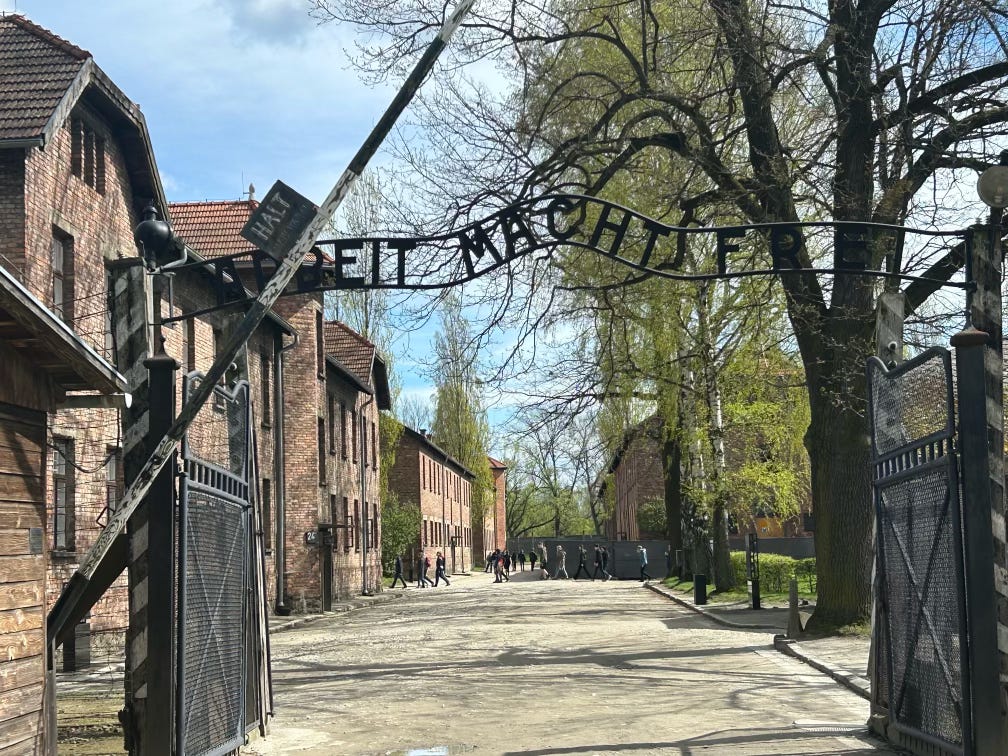


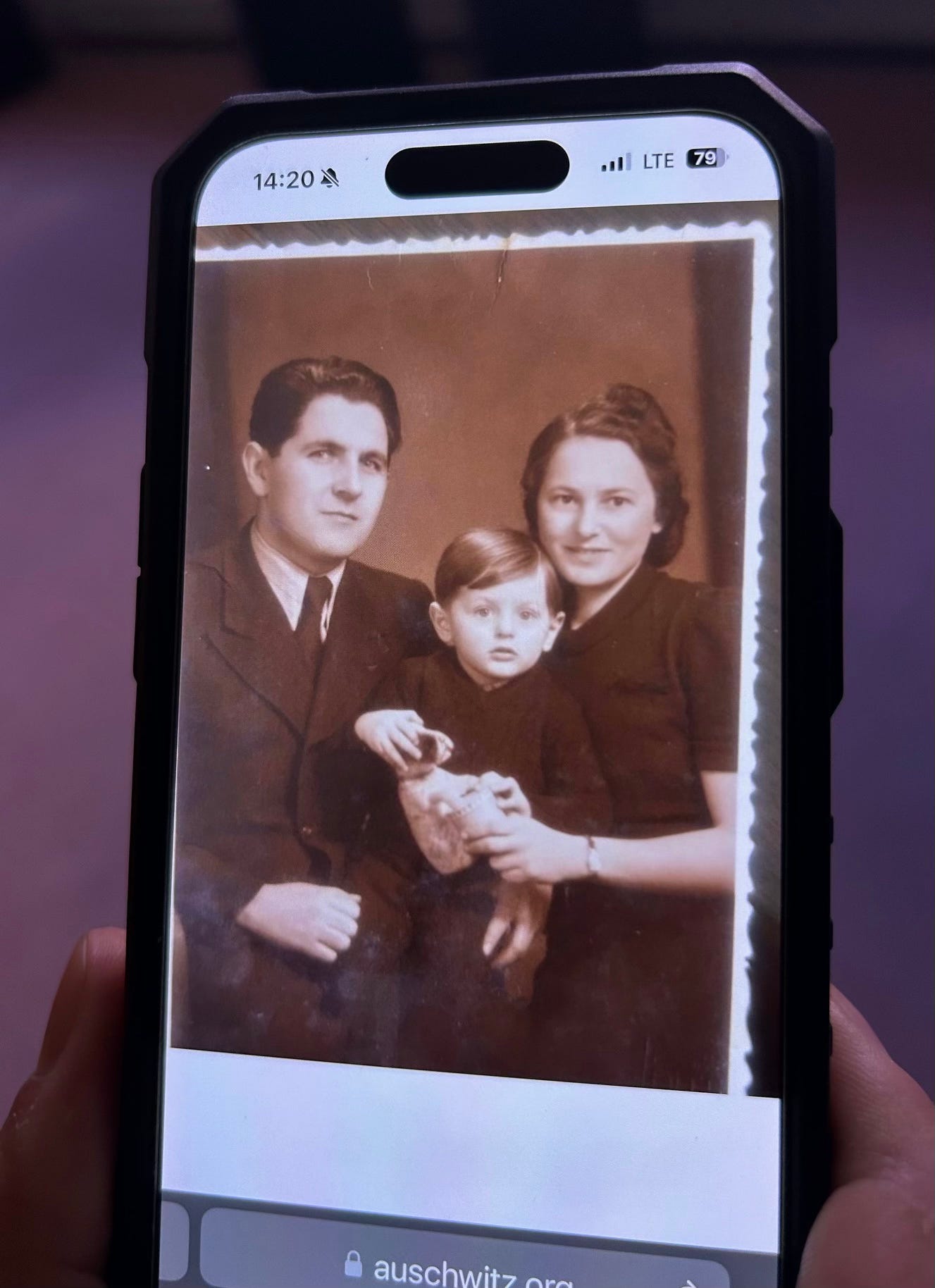
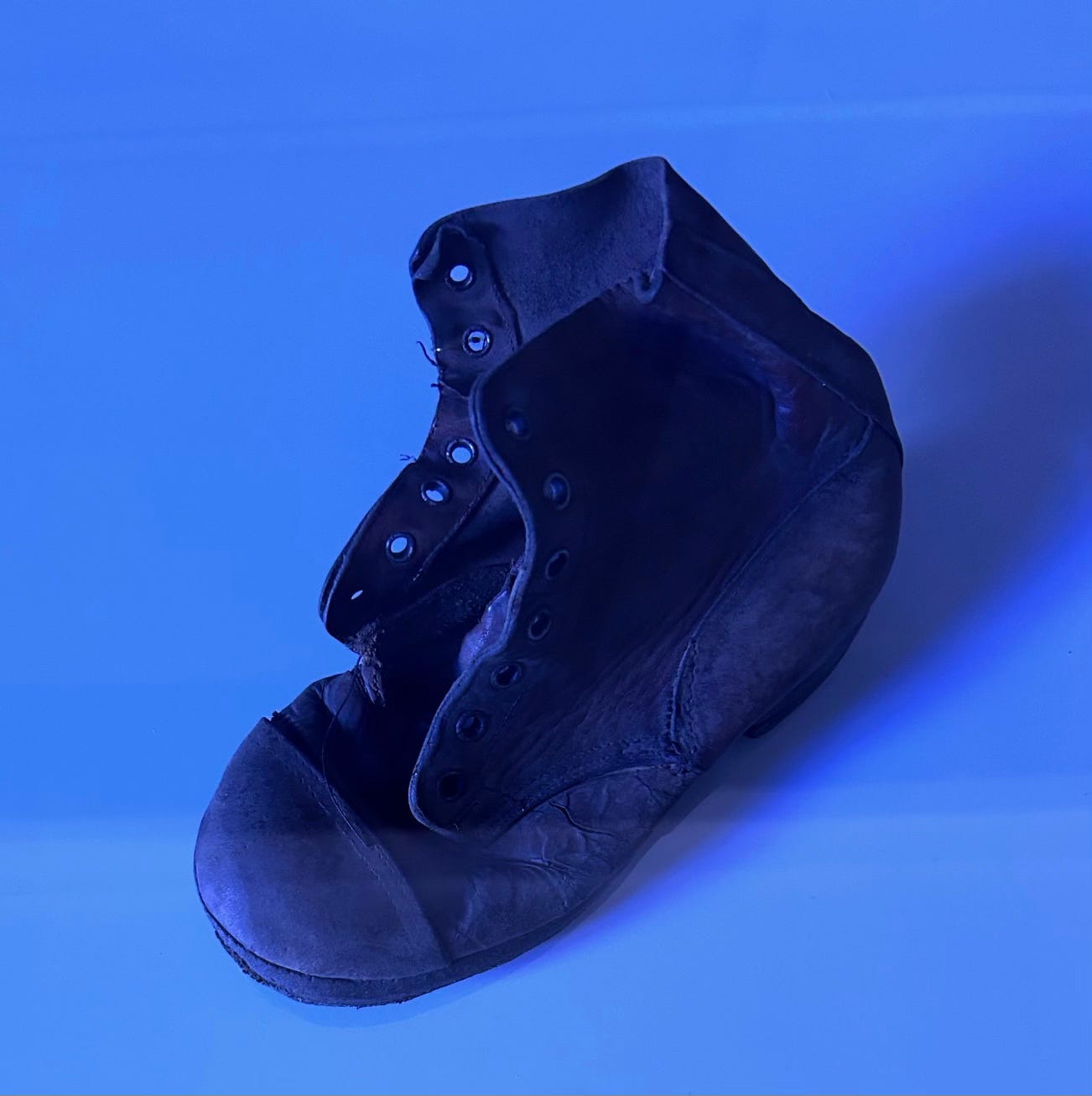
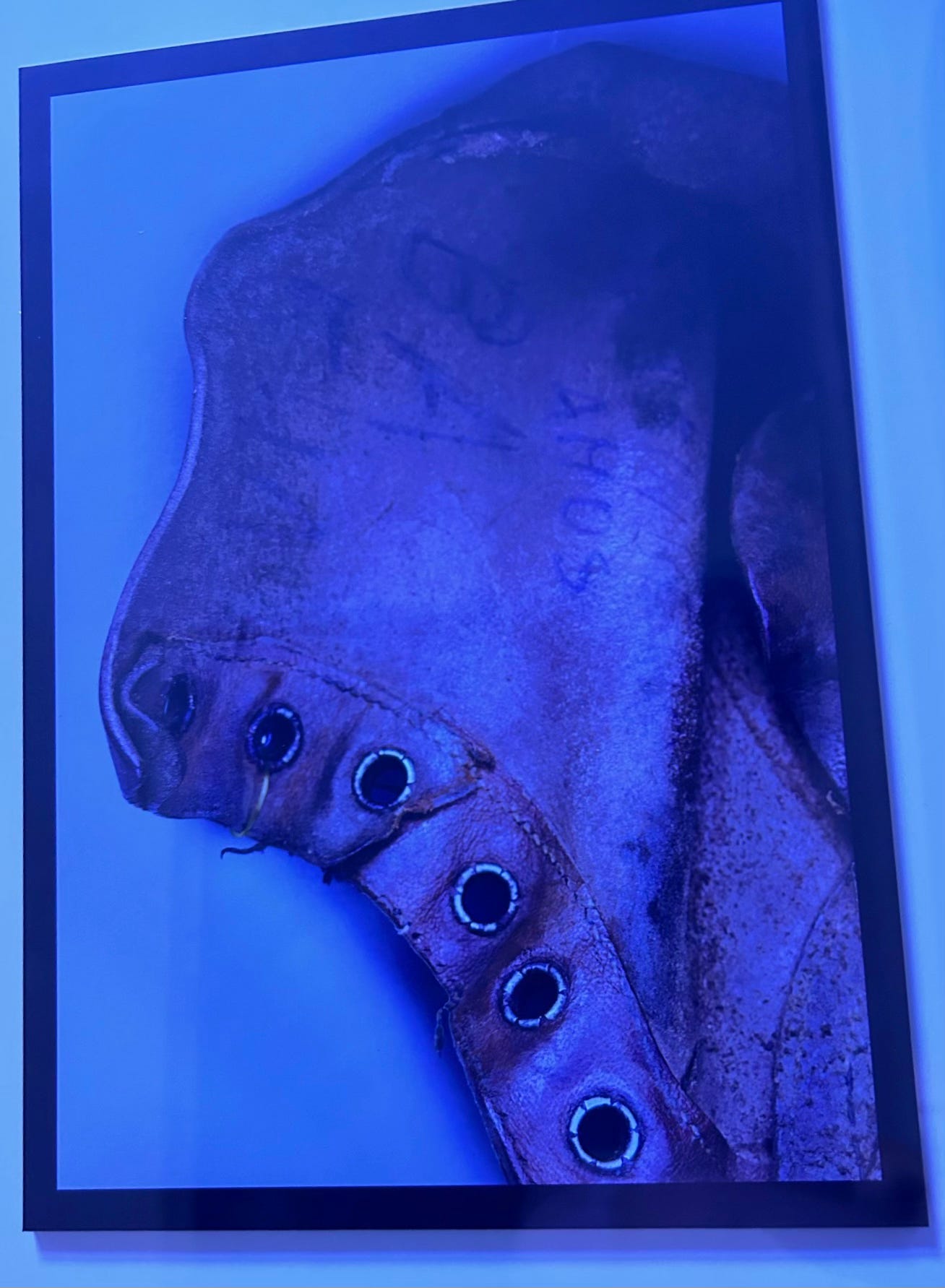
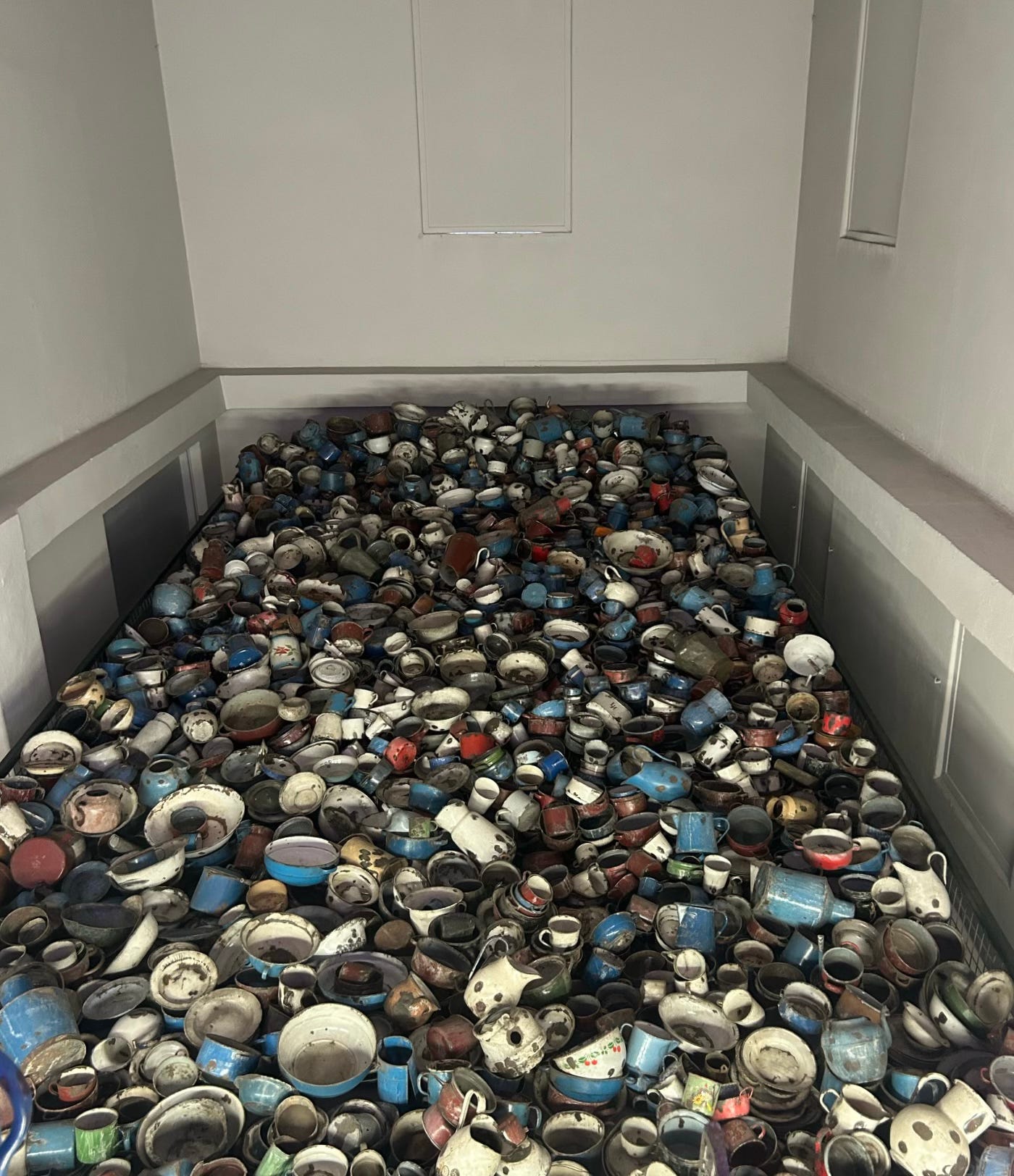
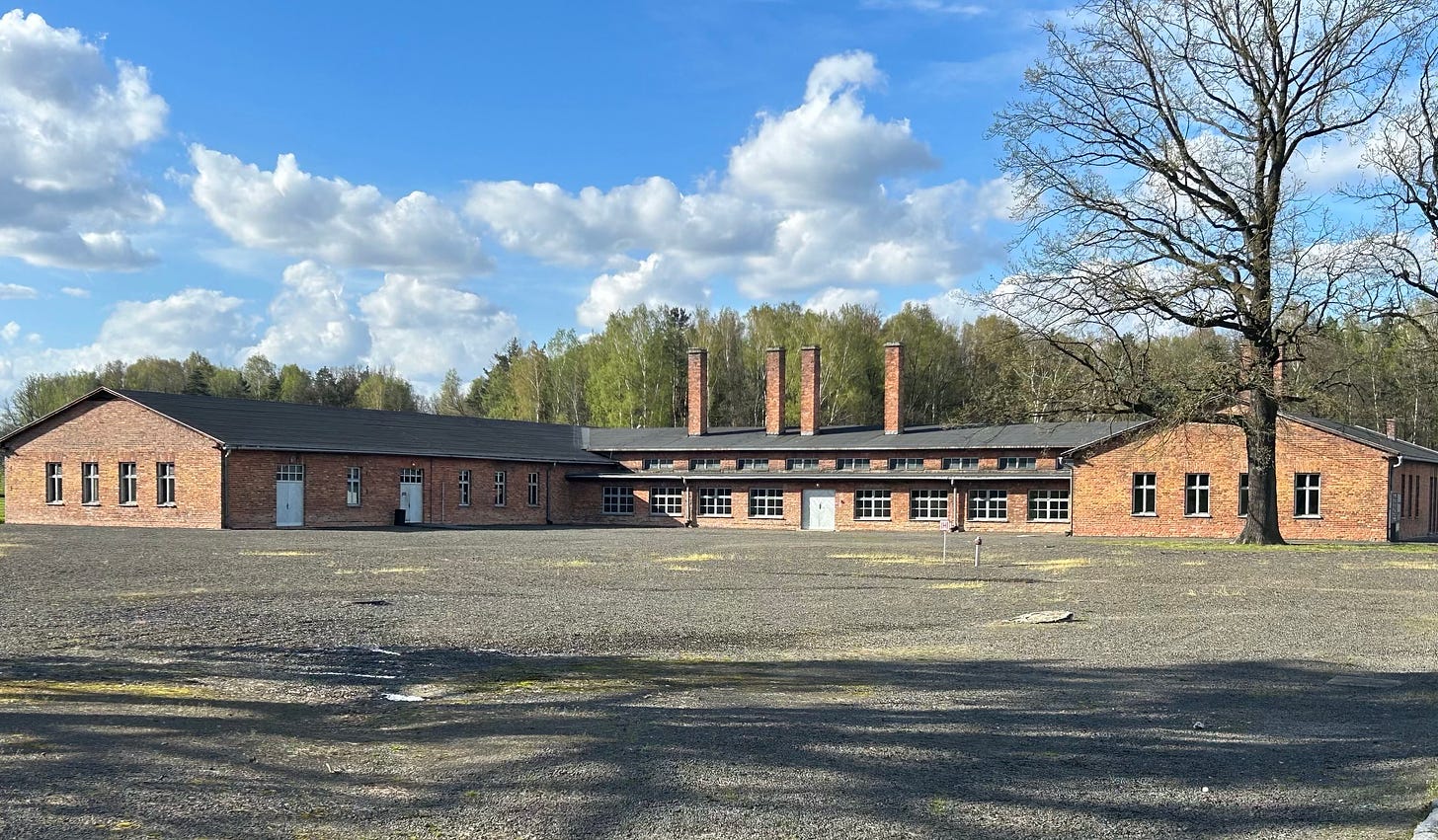
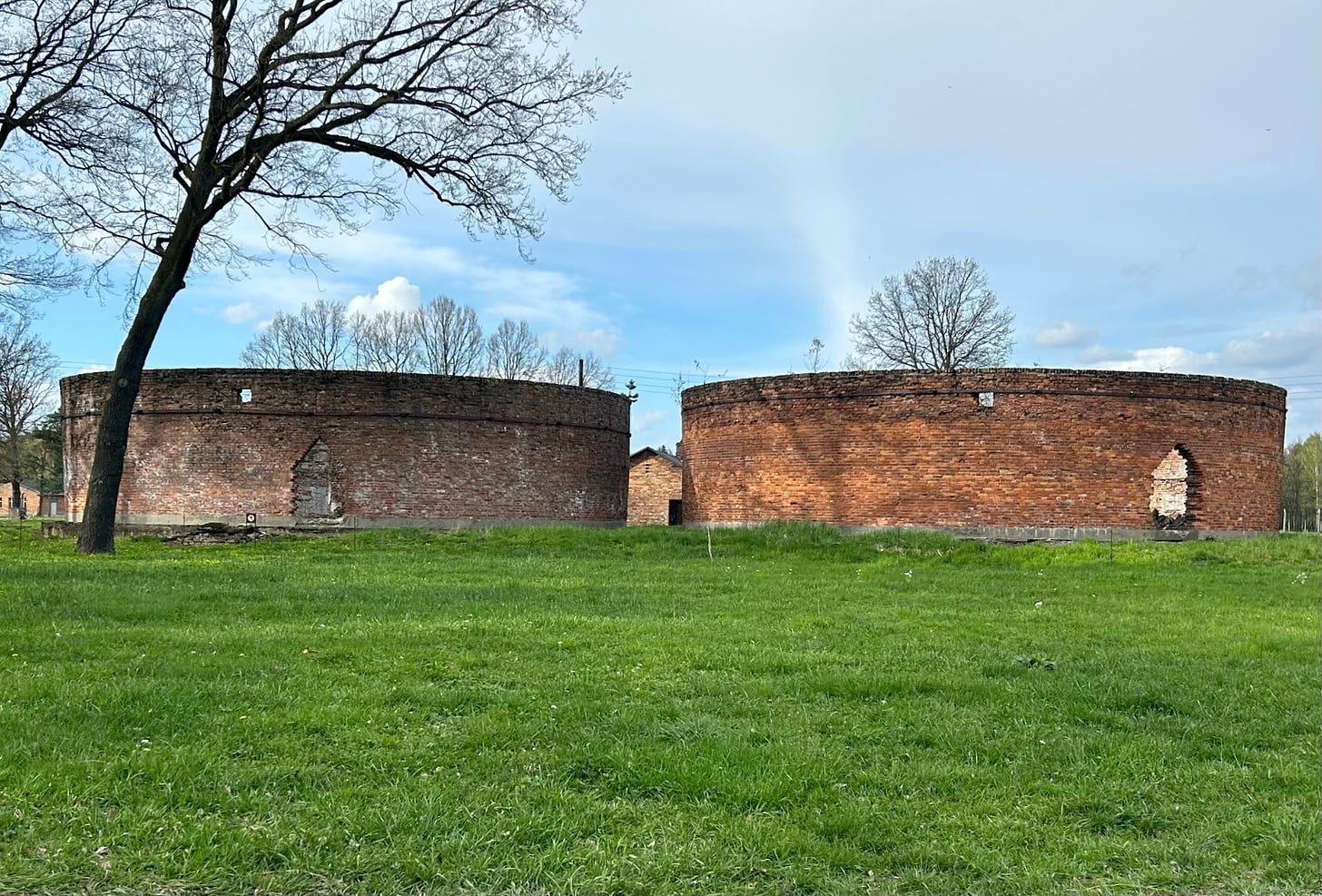

Amazing writing, obviously from the heart. Thank you Steve.
"As long as there are human beings, there is a possibility of another Auschwitz." Stark but very true. I fully believe that Trump, Musk, Patel, and so many others could easily be a party to recreating such a horror, and the MAGAT faithful would follow their cue, blind and stupid as they appear to be. Cruel, too.